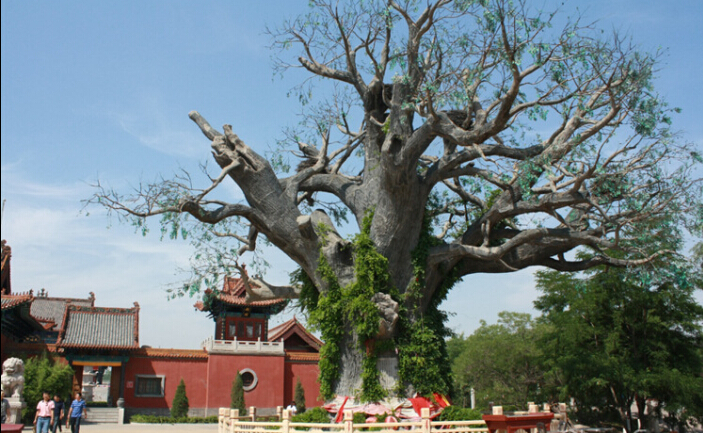Hongtong Grand Pagoda Tree cultivates sense of home

The Hongtong Grand Pagoda Tree is an abstract symbol of “hometown” for Chinese.
In the early Ming Dynasty, the Hongtong Grand Pagoda Tree, a gathering place for refugees of regional wars at the time, exerted a significant influence on population migration in Chinese history. As a main hub for external migration at that time, the Hongtong Grand Pagoda Tree was regarded as a “home” for Chinese in China and formed the basis for their collective memory of their hometowns. From the perspective of cultural identity, the Hongtong Grand Pagoda Tree is an abstract symbol of “hometown” culture instead of a specific cradle of immigrants.
In order to pass down legends, receive emotional sustenance and cultivate a cultural identity, Hongtong’s middle class published The Country Annals of Hongtong, The Records of Hongtong Grand Pagoda Tree and The Augmented Records of Shanxi Hongtong Grand Pagoda Tree for immigrants and provided them support for revision of genealogies and clan pedigrees.
The compilation of these books gradually helped to authenticate the stories of Hongtong Grand Pagoda Tree immigrants in the eyes of authorities. When a group of Shanxi migrants settled in the other northern regions, their choice of appropriate identities for themselves reflected their needs in their daily struggles through life.
Immigrants of the Grand Pagoda Tree, as a cluster of immigrants with the same hometown, could easily gain a collective advantage for social competition. This tangible benefit may also have been a significant motivation for immigrants to seek out their ancestral heritage.
Hongtong is located in southern Shanxi and in general belongs to the Yellow River basin, which was one of the cradles of Chinese civilization. Hongtong is called the “holy state” in history. There are many ancient Yangshao cultural relics in Hongtong and the people who lived there in prehistoric times created a splendid culture.
Many descendants of immigrants in China and abroad have taken the Hongtong Grand Pagoda Tree as their place of origin, expressing reminiscence and general recognition for Chinese cultural traditions. Hongtong, the Grand Pagoda Tree, the family ancestral temple, genealogy, local chronicles and families constituted the cultural symbols of the Hongtong Grand Pagoda Tree’ s spiritual home and established a grand recognition of Chinese civilization along with the immigrants of the Hongtong Grand Pagoda Tree in the Ming Dynasty.
Many Chinese at home and abroad headed to Hongtong in pursuit of finding a hometown in Hongtong and seeking spiritual comfort. It indicates that traditional Chinese people’s instinct of reason at the spiritual level embodies their belief in obeying filial duty and kinship, genetic connection and the idea of clan, and their desire to return to their roots.
Yu Xuezhong is from the Institute of Chongqing Three Gorges Cultural and Social Development.
The Chinese version appeared in Chinese Social Sciences Today, No. 644, Sept. 10, 2014
Translated by Zhang Mengying

 PRINT
PRINT CLOSE
CLOSE